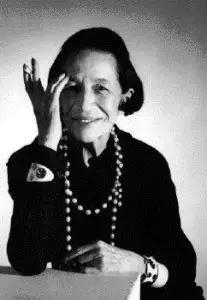
writing
I Write Like…
In case you missed this meme, it’s great fun. I Write Like is a website that lets you paste in an excerpt of your writing,
It is the seed that floats to shore, one word, one tiny, even microscopic word, is that which can alone save us.
William Carlos Williams

In case you missed this meme, it’s great fun. I Write Like is a website that lets you paste in an excerpt of your writing,

For sale: Baby shoes, never worn. That was supposedly what Hemingway penned when asked to write a story in six words. SMITH Magazine used the

Diana Vreeland, the legendary Vogue editor, wrote staff memos that were cryptic, brilliant and spare.

My mom and me—future luxury destination copywriter—on Sanibel Island Ever wonder whether copywriters are made or born? No, I hadn’t wasted any time thinking about